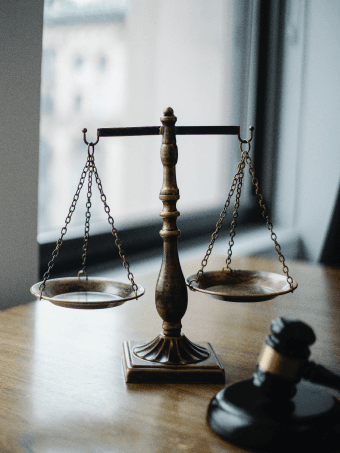The Case
The James Bond franchise is one of the most iconic in entertainment history. Beyond films and books, its trademarks extend into numerous industries: cosmetics, personal care, clothing, toys, technology, and even electronic goods. Such broad protection isn’t unusual—major companies often register trademarks across a wide range of categories to capitalize on merchandising and to block unauthorized third-party use.
However, trademarks are not indefinite rights by default. They are subject to two important limitations: jurisdiction and class specificity. A trademark only protects the brand in the countries where it is registered and only in the specific product or service categories (known as classes) covered in the registration. Critically, these trademarks must also be actively and continuously used in commerce. If they are not, they risk cancellation through what is known as a non-use action.
Danjaq LLC—the U.S.-based company that owns the James Bond trademarks—is currently facing this exact situation. In early 2025, Dubai-based property developer Josef Kleindienst filed a series of non-use cancellation actions against several Bond-related trademarks in both the European Union and the United Kingdom. Kleindienst alleges that certain James Bond trademarks have not been used commercially for over five years, making them vulnerable to revocation under EU and UK trademark law.
What are Non-Use Cancellation Actions?
A non-use cancellation action is a formal legal procedure used to challenge the validity of a registered trademark on the grounds that it has not been put to “genuine use” in commerce for a continuous period—typically five years in the EU and UK (and three years in jurisdictions like the U.S.).
These actions can be filed by any third party with a legitimate interest in clearing unused marks from the trademark register. Once initiated, the burden of proof usually shifts to the trademark owner, who must demonstrate that the mark has been used during the relevant time period or that valid reasons exist for its non-use.
“Genuine use” must involve the actual, public-facing commercial use of the trademark for the goods or services it was registered under. Merely keeping the trademark on paper or using it internally is not sufficient. If the trademark holder fails to prove use, the registration can be cancelled either in full or partially—limited to the classes of goods or services where no evidence of use was shown.
Non-use cancellations are increasingly common tools used by businesses, investors, and brand speculators alike. They help clear unused trademarks that otherwise occupy space in the registry, block new applications, or are held simply for speculative reasons.
What's next for James Bond?
Danjaq LLC has already filed its defense against the UK cancellation actions and requested a deadline extension from the EU Intellectual Property Office (EUIPO), which has been granted. However, this extension only buys the company time until mid-June 2025—after which a substantive defense must be filed.
To succeed, Danjaq must present compelling evidence of genuine use across the categories being challenged. This could include product sales, licensing agreements, promotional materials, or media releases demonstrating that the James Bond name and branding have been actively used in Europe over the past five years.
If the company’s defense is successful, the trademarks will remain intact, safeguarding the exclusive rights to Bond-related merchandise and services. However, if the evidence falls short, Danjaq risks partial revocation. While it's unlikely the Bond name would be lost entirely—especially in key entertainment-related classes—the trademarks could be invalidated for lesser-used categories like publishing, hospitality, or cosmetics.
Even if trademarks are revoked in some areas, Kleindienst and others may still struggle to use the Bond name commercially. Thanks to the concept of residual goodwill and the risk of consumer confusion, Danjaq may retain strong common law rights that could serve as a legal shield in some situations.
Takeaways
This case is a cautionary tale about the importance of active trademark management. A trademark registration is not a "set it and forget it" right—it must be maintained, renewed, and most importantly, used. Failure to do so could open the door for third parties to challenge and potentially cancel the mark.
For brand owners, particularly those overseeing globally recognized properties, this means consistent commercial activity across all relevant markets and product classes. Licensing, merchandising, and regular brand promotion are essential to demonstrate that a trademark is still serving its intended purpose: identifying the source of goods or services in the marketplace.
As the case of James Bond shows, even iconic franchises aren’t immune to the rules of trademark law. For businesses of all sizes, it's a reminder to regularly audit your trademark portfolio and ensure your intellectual property is being put to work.
FAQs - James Bond Defends its Marks in the EU and UK
1. What is “genuine use” in trademark law?
Genuine use refers to the actual, commercial use of a trademark in the marketplace for the goods or services it was registered under. It must be public, consistent, and not just token use to maintain the registration. This can include sales, advertising, or licensing activities that demonstrate the mark is actively used in trade.
2. Can trademarks be cancelled if they’re not used?
Yes. In many jurisdictions, including the EU and UK, trademarks can be revoked if they haven’t been used for five continuous years after registration. This is done through a non-use cancellation action, which clears out unused trademarks and opens up the registry to others.
3. What happens if a trademark is cancelled?
If a trademark is cancelled due to non-use, the owner loses their exclusive rights to that mark in the affected classes. This allows other entities to potentially register or use similar marks for those goods or services. However, in high-profile cases, the original brand may still assert common law rights based on residual goodwill.


